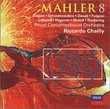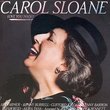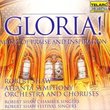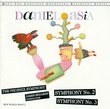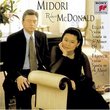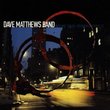| All Artists: William Stone, Paul Hindemith, Robert Shaw, Jan DeGaetani, Atlanta Symphony Orchestra & Chorus Title: Paul Hindemith: When Lilacs Last in the Dooryard Bloom'd (A Requiem for Those We Love) Members Wishing: 0 Total Copies: 1 Label: Telarc Release Date: 4/23/2002 Genre: Classical Styles: Opera & Classical Vocal, Historical Periods, Modern, 20th, & 21st Century, Symphonies Number of Discs: 1 SwapaCD Credits: 1 UPC: 089408013225 |
Search - William Stone, Paul Hindemith, Robert Shaw :: Paul Hindemith: When Lilacs Last in the Dooryard Bloom'd (A Requiem for Those We Love)
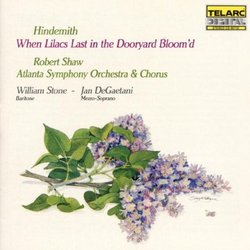 | William Stone, Paul Hindemith, Robert Shaw Paul Hindemith: When Lilacs Last in the Dooryard Bloom'd (A Requiem for Those We Love) Genre: Classical
No Description Available. Genre: Classical Music Media Format: Compact Disk Rating: Release Date: 1-JAN-2002 ![header=[] body=[This CD is available to be requested as disc only.]](/images/attributes/disc.png?v=a4e11020) ![header=[] body=[This CD is available to be requested with the disc and back insert.]](/images/attributes/disc_back.png?v=a4e11020) ![header=[] body=[This CD is available to be requested with the disc and front insert.]](/images/attributes/disc_front.png?v=a4e11020) ![header=[] body=[This CD is available to be requested with the disc, front and back inserts.]](/images/attributes/disc_front_back.png?v=a4e11020) |
Larger Image |
CD DetailsSynopsis
Product Description No Description Available. Genre: Classical Music Media Format: Compact Disk Rating: Release Date: 1-JAN-2002 Similar CDsSimilarly Requested CDs
|
CD ReviewsA recording for the ages Samer T Ismail | Danbury, CT | 12/19/2000 (5 out of 5 stars) "Robert Shaw knew "Lilacs" better than anyone--not only has he performed it more than anyone else, it was he who commissioned Hindemith to write the work in 1945 following the death of President Roosevelt.I had the chance to hear Robert Shaw lead the Yale Glee Club in a performance of "Lilacs" in 1996, on the 50th anniversary of the work's completion (Hindemith was a music professor at Yale at the time). I was blown away from the very opening, played over a four-minute pedal point, and held with rapt attention to the very end.This disk captured all the emotion of that performance; Stone and De Gaetani give extraordinarily warm and expressive performances, and the Atlanta Symphony Chorus, as always, is flawless. Shaw captures all the nuances of the work, from the menacing Orchestral Introduction, to the exquisite "Death Carol" ("Come, lovely and soothing Death"), to the 'sunset'-like finale ("Lilac and star and bird . . .").This disk is a must-have for fans of Shaw or Hindemith. I recommend it highly." A perfect compostion and recording Critic at large | East Coast USA | 09/18/2005 (5 out of 5 stars) "Robert Shaw was one of the greats of choral music, that goes without saying. Even if some of his recordings sound a bit "dated" to some ears, he was an important pioneer of American music. The vocalists, Stone and de Gaetani, are without a doubt ideally suited to this work. They clearly grasped the poetry of Whitman and the wonderful music of Hindemith, and wove them into wonderful vocal art. Hindemith, in my opinion a vastly underrated composer, spreads his wings and shows his overall musical talent in this requiem. Not just as the "German academician", but as a sensitive artist. He combined the genius of the German tradtion he represented as a refugee from Europe with the American genius of Whitman. In doing so, he created powerful art during some of the darkest days of the 20th century. This recording is highly recommended. I've listened to it dozens of times and it never fails to impact me emotionally. " Encountering an old friend Grady Harp | Los Angeles, CA United States | 12/20/2002 (5 out of 5 stars) "There have been some exquisite works for large orchestra and chorus composed in the last century, works that compare favorably with the great requiems and oratorios of the past. Evidence: Britten's 'War Requiem', Adams' "Harmonium", Gorecki's Symphony #2, Lauridsen's 'Lux Aeternam'. Not the least among these is the breathtakingly beautiful Hindemith WHEN LILACS LAST IN DOORYARD BLOOM'D based on the poetry of Walt Whitman. This massive yet gentle work is given a definitive performance by Robert Shaw and his Atlanta forces with the incomparable Jan de Gaetani and the fine William Stone bringing all the lonely haunting beauty to Hindemith's score. It is with a bit of sadness to remember that both Shaw and de Gaetani are no longer with us, but that adds to the power of this elegant requiem."
|

 Track Listings (12) - Disc #1
Track Listings (12) - Disc #1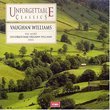
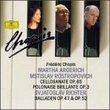

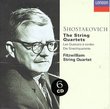
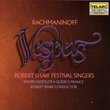
![Some Devil [Limited Edition w/ Bonus CD]](https://nationalbookswap.com/cd//m/18/9018/659018.jpg)
